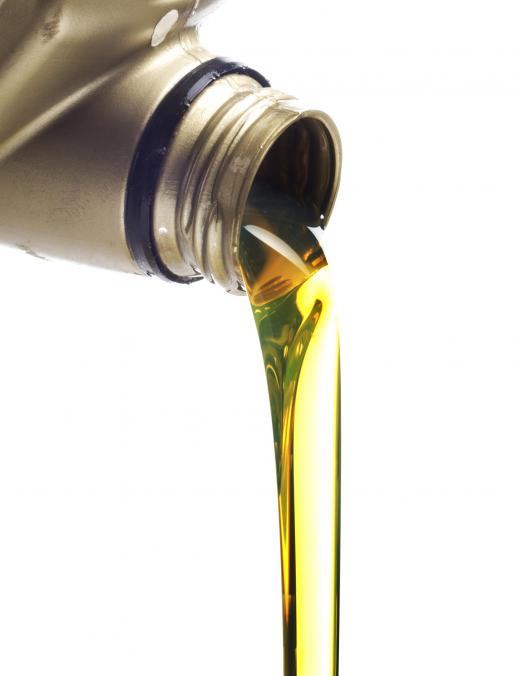The primary examples of oil combustion involve burning either fuel or waste oil for the purposes of electricity generation or heating. These processes typically make use of petrochemical oils. Fuel oil heaters may be used to heat individual homes or much larger industrial settings, while waste oil is more commonly used in commercial and industrial contexts. Residual fuel oil is sometimes used for electricity generation, and has also been used in vehicles like steamships and locomotives. Another type of oil combustion uses vegetable oil or animal fat to run diesel engines.
Fuel oils can be produced via the same fractional distillation process as gasoline, and are typically categorized into six different types. These range from kerosene, which boils off immediately after gasoline, to heavy residual fuel oils. Kerosene is the lightest of the fuel oils and has a variety of uses. Some of the common uses of kerosene oil combustion are heating or lighting, and it has also been used to power vehicles.

After kerosene boils off in a fractional distillation, the next lightest type is heating oil. Another name for this type of oil is diesel due to its use in powering diesel engines. Heating oil and diesel combustion can be used to heat buildings or to fuel cars and trucks. It is often possible to convert diesel engines to run on other types of oil as well. These converted engines will often be able to combust various vegetable oils and animal fats.

Residual fuel oils are some of the heavier results of fractionally distilling petroleum. These types of oil can be one of the least expensive liquid fuels available, though they typically require special heating apparatuses to combust. There may also a number of pollution concerns involved with the residual fuel oil combustion process. Large ships and power plants can both utilize the type of combustion equipment required by residual fuel oil.

Waste oil typically refers to oil that has already been used for its intended purpose. Another term for this is used oil, with the usage and precise definition of the terms varying from place to place. One example of waste oil is the motor oil in cars that is changed at regular intervals. After a certain amount of use it is no longer able to perform its lubrication functions, though it may still be useful in oil combustion. Waste oil is typically combusted as a heat source, though it is sometimes used in boilers for various industrial applications.
